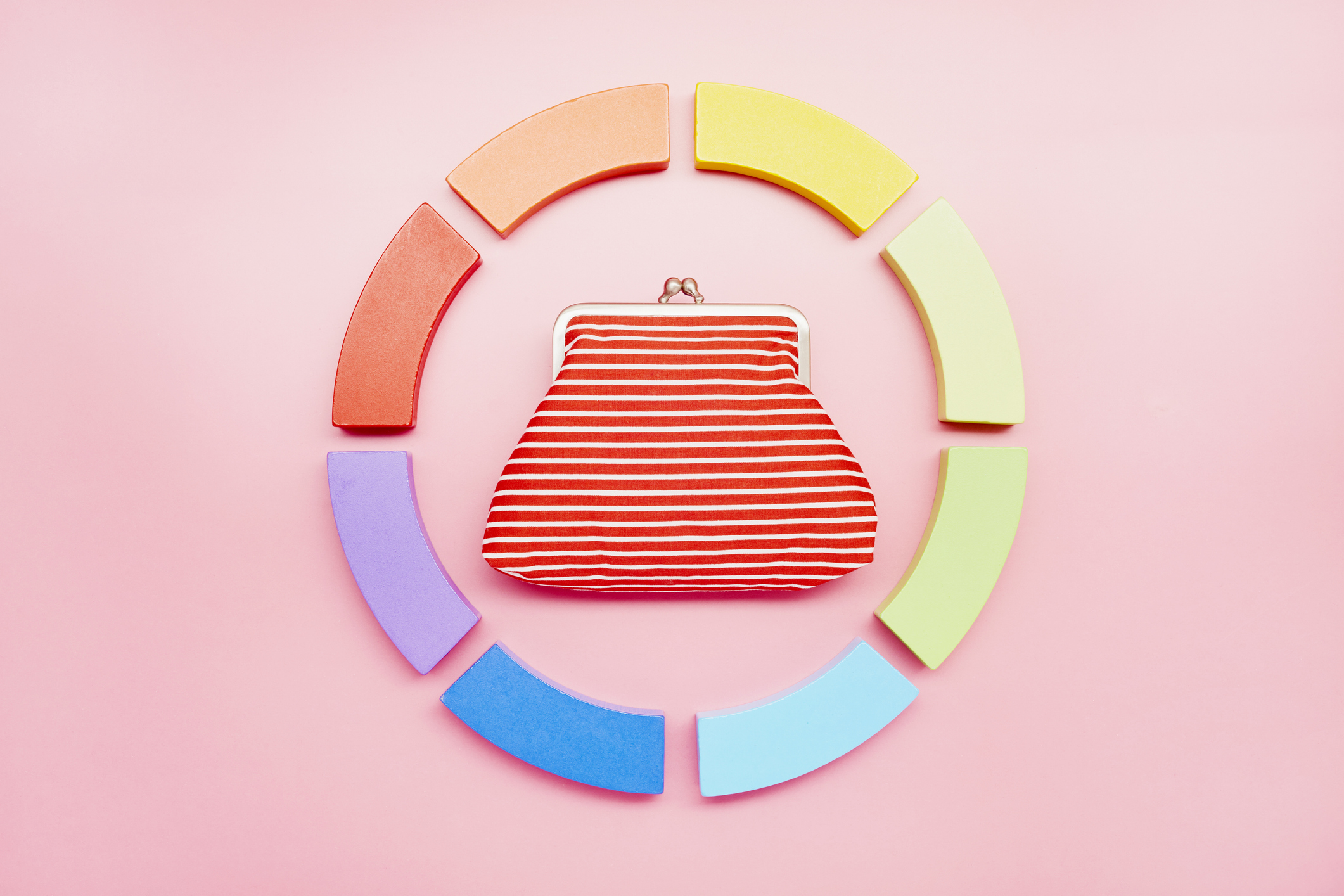Chase bank account: Time running out to earn unlimited cashback
Chase Bank pays you 1% cashback on all your purchases, plus 1% interest on your balance - but, you’ll need to act fast to take advantage of it.


Get the latest financial news, insights and expert analysis from our award-winning MoneyWeek team, to help you understand what really matters when it comes to your finances.
You are now subscribed
Your newsletter sign-up was successful
Want to add more newsletters?

Twice daily
MoneyWeek
Get the latest financial news, insights and expert analysis from our award-winning MoneyWeek team, to help you understand what really matters when it comes to your finances.

Four times a week
Look After My Bills
Sign up to our free money-saving newsletter, filled with the latest news and expert advice to help you find the best tips and deals for managing your bills. Start saving today!
The clock is ticking if you want to take advantage of unlimited cashback from a Chase Bank current account.
While many banks have been competing for our business by launching cash switching bonuses, Chase has taken a different route by rewarding account holders when they spend.
The Chase bank account pays 1% cashback on all regular spending on your debit card each month for your first 12 months with the account, and currently that cashback is uncapped. That means that you will get 1% back on all of that normal spending, no matter how much that 1% comes to.
MoneyWeek
Subscribe to MoneyWeek today and get your first six magazine issues absolutely FREE

Sign up to Money Morning
Don't miss the latest investment and personal finances news, market analysis, plus money-saving tips with our free twice-daily newsletter
Don't miss the latest investment and personal finances news, market analysis, plus money-saving tips with our free twice-daily newsletter
But, things are changing from 9 May. All applications for the account from that date will still benefit from the cashback on offer, but there will be a cap in place; the caps means you won’t be able to pocket more than £15 a month in cashback. That’s still an excellent proposition, but if you are a big spender on your debit card then you’ll potentially be missing out on further rewards if you don’t apply for the Chase current account by 8 May.
The Chase account also offers a nice alternative to cashback credit cards, should you want to earn cashback on your spending without wanting to take out a new credit card in order to do so.
Can I earn cashback on all of my spending with the Chase current account?
The emphasis on the Chase cashback offer is on everyday spending. You can earn cashback on almost everything - from your daily coffee, train tickets to your weekly groceries shopping.
As a result, you won’t earn cashback on big, out of the ordinary purchases that you make with your debit card.
Exclusions include spending on things like:
- College and university fees
- Estate agent fees
- Buying from art galleries or antique shops
- Cash withdrawals
- Gambling transactions
- Cryptocurrencies
- Tax payments
Earning interest with the Chase current account
The cashback isn’t the only selling point to the Chase current account; you can also earn interest on in-credit balances.
Chase recently introduced an interest rate of 1% for current account balances. What’s more, this rate is paid on the entirety of your balance, unlike some accounts which will only pay interest on the first £2,500 or so in your bank account.
There are no minimum monthly deposit or direct debit requirements and no fees, either.
The bank also offers a savings account, linked to its current account, which pays 3.1% interest, as well as 5% interest on its round-up account.
What are other digital banks offering?
Digital banks, or app-based banks, have grown in popularity over the past few years.
Though these don’t have physical branches, many users are switching to them for the convenience they provide.
Monzo pays 3.20% on its Instant Access Savings Pots, and you don’t need a minimum deposit. Additionally you can withdraw your money at any time, but it will take a working day for it to hit your account.
Starling Bank allows you to save between £2,000 to £1,000,000 into a one-year fixed saver with a rate of 3.25%. It’s worth shopping around for the best one-year fixed savings accounts, as some of them are offering rates of over 4.50%.
And while Atom Bank does not operate a current account, its one year fixed saver pays a rate of 4.55%.
No digital banks pay cashback on debit card spending, though some regular high street banks do.
For example, Santander has the Edge account which pays 1% cashback on debit card spending at supermarkets and on travel. It also pays 1% cashback on certain household bills paid by direct debit.
Get the latest financial news, insights and expert analysis from our award-winning MoneyWeek team, to help you understand what really matters when it comes to your finances.
John Fitzsimons has been writing about finance since 2007, and is a former editor of Mortgage Solutions and loveMONEY. Since going freelance in 2016 he has written for publications including The Sunday Times, The Mirror, The Sun, The Daily Mail and Forbes, and is committed to helping readers make more informed decisions about their money.
-
 Ayatollah Ali Khamenei: Iran’s underestimated chief cleric
Ayatollah Ali Khamenei: Iran’s underestimated chief clericAyatollah Ali Khamenei is the Iranian regime’s great survivor portraying himself as a humble religious man while presiding over an international business empire
-
 'AI will change our world in more ways than we can imagine'
'AI will change our world in more ways than we can imagine'Interview Rob Arnott of Research Affiliates talks to Andrew Van Sickle about the AI bubble, the impact of tariffs on inflation and the outlook for gold and China
-
 Thousands of Brits switch to Nationwide, Monzo and NatWest – which banks are least popular?
Thousands of Brits switch to Nationwide, Monzo and NatWest – which banks are least popular?We look at the most and least popular banks and building societies as current account bank switches reach a record high. Is it worth moving your money?
-
 Best and worst UK banks revealed
Best and worst UK banks revealedWe reveal the best UK banks – and the worst – when it comes to managing your money and good customer service. How does your provider compare?
-
 iPhone users can now check bank balance from Apple Wallet
iPhone users can now check bank balance from Apple WalletNew tool aims to make it easier for smartphone users to track bank balance and spending
-
 Act now to bag NatWest-owned Ulster Bank's 5.2% easy access savings account
Act now to bag NatWest-owned Ulster Bank's 5.2% easy access savings accountUlster Bank is offering savers the chance to earn 5.2% on their cash savings, but you need to act fast as easy access rates are falling. We have all the details
-
 Moneybox raises market-leading cash ISA to 5%
Moneybox raises market-leading cash ISA to 5%Savings and investing app MoneyBox has boosted the rate on its cash ISA again, hiking it from 4.75% to 5% making it one of top rates. We have all the details.
-
 October NS&I Premium Bonds winners - check now to see what you won
October NS&I Premium Bonds winners - check now to see what you wonNS&I Premium Bonds holders can check now to see if they have won a prize this month. We explain how to check your premium bonds
-
 The best packaged bank accounts
The best packaged bank accountsAdvice Packaged bank accounts can offer great value with useful additional perks – but get it wrong and you could be out of pocket
-
 Bank of Baroda closes doors to UK retail banking
Bank of Baroda closes doors to UK retail bankingAfter almost 70 years of operating in the UK, one of India’s largest bank is shutting up shop in the UK retail banking market. We explain everything you need to know if you have savings or a current account with Bank of Baroda
